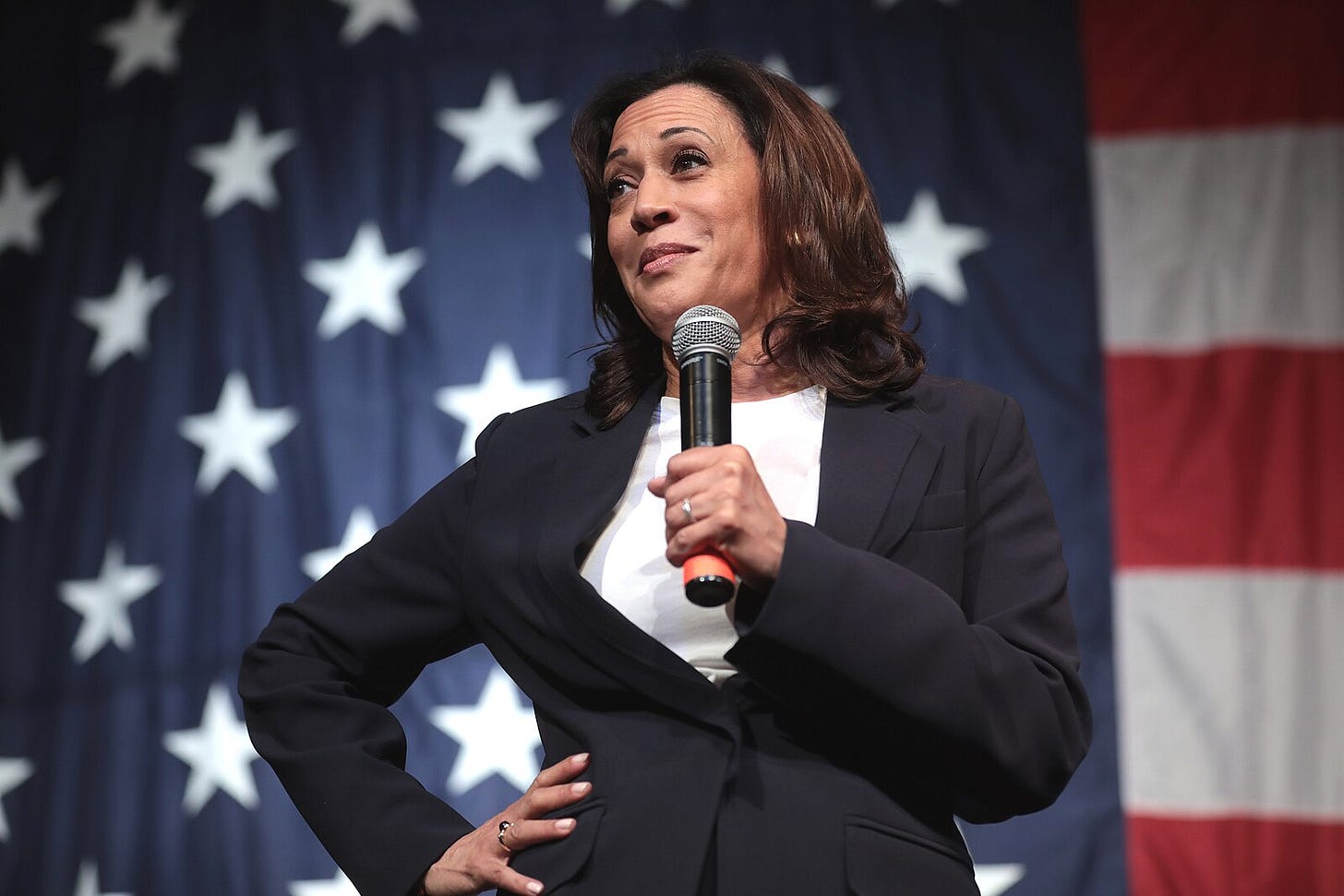By Jay Mudholkar, Special to The Kennedy Beacon
In early September, The New York Times published an analysis of the upcoming election featuring Professor Allan Lichtman, who they dub as the “prophet of presidential elections.” Using 13 “keys” to the election, Lichtman argues – in an opinion piece and accompanying video – that Harris will win.
Each Lichtman "key" can be true or false, and if six or more keys are false, then the incumbent party loses, and the insurgent party wins.
The categories Lichtman has selected are: (1) incumbent party midterm success; (2) no incumbent party primary contest; (3) incumbency advantage; (4) no third party challengers; (5) strong short-term economy; (6) strong long-term economy; (7) major policy accomplishments; (8) no social unrest; (9) no scandal; (10) no foreign/military failure; (11) foreign/military success; (12) incumbent charisma; (13) no challenger charisma.
First, I agree with Lichtman’s interpretation of his own 13 keys: he determined five of them at most would be false.
But I draw different conclusions.
As I explain below, my analysis finds seven keys to be false; for there to be a change in administration, at least six keys must be false. Thus, there will be a change: the incumbent Democrats will lose, and the new Trump Republicans will win.
The incumbent administration is grappling with significant challenges that are boosting support for the opposing party and paving the way for Donald Trump’s potential re-election. Based on Lichtman’s 13 keys, there are clear reasons to anticipate Trump’s inauguration in January 2025.
To start, the Democratic Party did not achieve the expected success in the midterms. They lost control of the House and did not manage to regain enough seats to exceed their 2018 performance, reflecting a notable voter dissatisfaction that contradicts their earlier triumphs. This decline raises concerns about the party's connection with the electorate moving forward.
Moreover, with Kamala Harris as the current candidate, the Democrats lost the incumbent advantage they had with Joe Biden, and voters may feel less familiar with her compared to Biden. This transition has diminished the Democrats' incumbency advantage, complicating their campaign strategy as they head into the election.
While the economy is technically not in a short-term recession, the situation remains difficult for many Americans. Economic indicators and tools can be deceptive. Take the saying that the stock market is a graph of rich peoples’ feelings. Another example is how a low unemployment rate does not convey the full picture when the labor force participation rate is also low. October 2024 Gallup polling shows that a majority of Americans — around 52% — believe they are in a worse position now compared to four years ago, with only 39% feeling better off. Rising inflation continues to strain household budgets, complicating the overall economic narrative.
Additionally, despite assertions from Democrats regarding the Biden-Harris administration’s accomplishments — such as climate initiatives and infrastructure upgrades — there remains a significant gap in recognition of these achievements among the general public. Many Americans feel disconnected from the purported successes.
Social unrest is another nuanced area. Pro-Israel and pro-Palestine supporters feel unable to speak their mind, due to professional and social consequences of doing so. Despite this, we have seen and continue to see protests on college campuses. Political polarization has reached unprecedented levels, with groupthink and partisan insularity amuck. In June, Gallup polling showed that 51% of Americans identify as independent, an all-time high, surpassing both Democrats and Republicans combined. Automation is accelerating, paired with a low labor-force participation rate. The celebrity scandals are quietly exploding in virality on social media.
Foreign policy has proven challenging for the administration as well: the botched Afghanistan withdrawal; no end in sight to the Russia-Ukraine war; Israeli hostages still not returned by Hamas; many people unable to stomach the humanitarian crisis in Gaza; and the risk of a wider World War. The administration also hasn’t had major foreign policy successes. Many Americans are frustrated by these issues, which reflect significant foreign policy failures without any clear victories.
Finally, while Harris may resonate with a portion of her base, she lacks the broad charisma needed to unite a wider audience, further complicating the Democrats' position as they approach the election.
Professor Lichtman and I agree on a lot, however.
The incumbent Democrat’s midterm success is unequivocally false, the notion of incumbency advantage falters, and Harris lacks broadly recognized charisma.
There are other areas where we overlap as well.
There was no primary contest and no primary debates with Biden. The Democrats swapped Biden for Harris, and Robert F. Kennedy Jr. and Williamson were left out of the process.
There is no third-party challenger. Despite his historic independent run, Kennedy withdrew to endorse Trump. Sure, there are also minor party candidates who have good numbers in certain states, like Jill Stein in Michigan; and Kennedy has been forced to stay on the ballot in some states despite dropping out. But there are no significant third-party challengers.
There was no major Biden administration scandal, and it’s mainly Republicans complaining about the Hunter Biden saga. Lichtman and I agree that both major party candidates lack charisma outside of their supportive bases, including Donald Trump: neither are JFK or FDR, who each had a charisma recognized by both parties.
There is no consensus on a long-term recession, which would negatively impact the incumbent administration. Regarding the long-term economic growth “key,” Lichtman’s formula states that real per capita growth should exceed the mean growth of the previous two terms. Since it does exceed that mean, this “key” is valid. While statistics can be misleading, I believe it's prudent to rely on this calculation, especially in the absence of overwhelming compelling evidence to the contrary.
However, my analysis diverges from Lichtman's in several critical areas. While he claims there is no short-term recession, I emphasize the importance of public sentiment regarding the economy. Although technically not in recession, the prevailing economic conditions are troubling for many Americans, as demonstrated by polling data. Hence, I rate this "key" as partially false.
Regarding major policy accomplishments, Lichtman views the Biden administration's achievements positively. In contrast, I argue that the general public's awareness of these successes, such as the Infrastructure Investment and Jobs Act, remains limited. For many, these initiatives lack the recognition that past programs like the COVID stimulus checks or ObamaCare garnered.
When discussing social unrest, I acknowledge that we are not experiencing levels akin to 2020 or the Vietnam War protests. However, I contend that discontent is still present, fueled by a mix of geopolitical tensions, economic insecurity, and social controversies. Therefore, I maintain that this "key" is also partially false.
On foreign affairs, while Lichtman considers these "keys" undetermined, I assert that the administration's track record is indicative of clear failures, from the unresolved situation in Ukraine to the humanitarian crisis in Gaza. This leads me to classify both foreign policy “keys” as false.
Ultimately, while I find areas of agreement with Professor Lichtman, my analysis highlights significant distinctions that reflect a more critical perspective on the current administration’s challenges.
As a result, I believe Donald Trump will be elected president, with 7 "keys" that are false.
Here’s a summary list of Professor Lichtman’s analysis:
Incumbent Party Midterm Success: FALSE
No Incumbent Party Primary Contest: TRUE
Incumbency Advantage: FALSE
No Third Party Challengers: TRUE
Strong Short-Term Economy: TRUE
Strong Long-Term Economy: TRUE
Major Policy Accomplishments: TRUE
No Social Unrest: TRUE
No Scandal. TRUE
No Foreign / Military Failure: Undetermined
Foreign / Military Success: Undetermined
Incumbent Charisma: FALSE
No Challenger Charisma: TRUE
Total: 3-5 false keys (depending on foreign / military answers)
Here’s a summary list of my analysis:
Incumbent Party Midterm Success: FALSE
No Incumbent Party Primary Contest: TRUE
Incumbency Advantage: FALSE
No Third Party Challengers: TRUE
Strong Short-Term Economy: ½ TRUE ½ FALSE
Strong Long-Term Economy: TRUE
Major Policy Accomplishments: FALSE
No Social Unrest: ½ TRUE ½ FALSE
No Scandal: TRUE
No Foreign / Military Failure: FALSE
Foreign / Military Success: FALSE
Incumbent Charisma: FALSE
No Challenger Charisma: TRUE
Total: 7 false keys
Jay Mudholkar is Chief of Staff of the super PAC, American Values 2024, which funds The Kennedy Beacon.







No major Biden administration scandal? Having and keeping in place an obviously dementia addled president doesn't qualify? A President so addled that he had to be replaced via a threat to invoke the 25th amendment? If he was addled enough to be threatened then he should have been replaced and Harris should be the president right now. Her failure to do this ultimately disqualifies her for the Presidency. "Hunter Biden saga"? No, it's the Joe Biden saga in that he used his son as bagman for his nefarious money making scams. Have you looked at the content from the laptop? 700,000 Ukranians are dead because of this, doesn't that qualify as a scandal? Your article shows just how low the bar has gone on scandalous behavior.
Jay,
Nice analysis!
I am concerned that judging the economy on the basis of the term 'recession' misses what people are experiencing. I think most Americans are struggling and the DNC and aligned media are telling the public that things are fine and that they "don't understand how the economy works." It is not working for most of us.